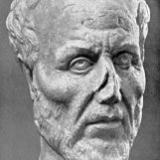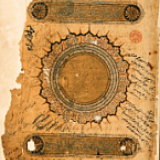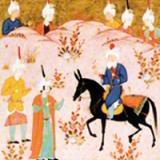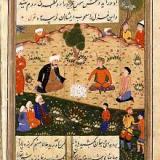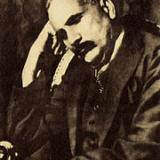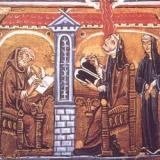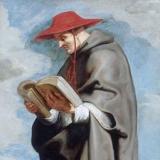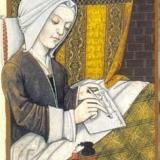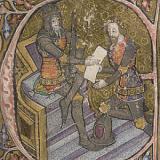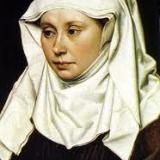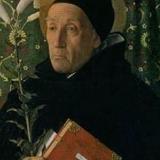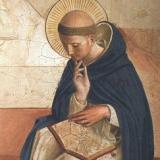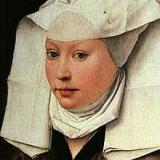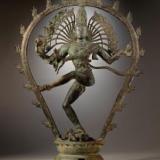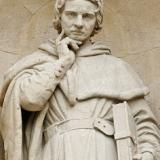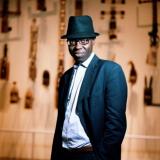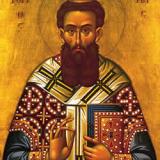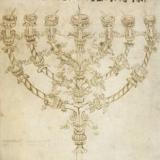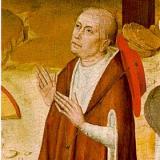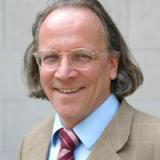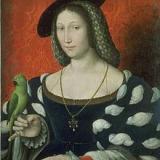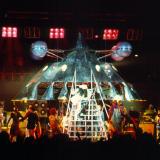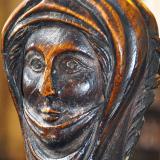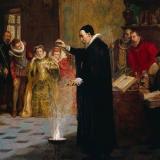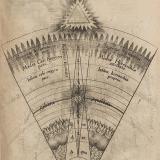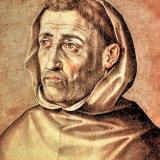Mysticism
Posted on
Plotinus posits an absolutely transcendent first principle, the One. What is it (or isn’t it), and how does it relate to Intellect?
Posted on
Neoplatonism is fused with Christianity by the pseudonymus author known as Dionysius. Peter looks at his Divine Names, a monument to God’s transcendence.
Posted on
Al-Ghazālī’s search for truth leads him to philosophy, Ash'arite theology, and ultimately the mystical tradition of Ṣūfism.
Posted on
Intellect and alienation in Ibn Bājja and Ibn Ṭufayl, author of the philosophical desert island castaway tale Ḥayy Ibn Yaqẓān.
Posted on
Sufism, the mystical tradition of Islam, unites with philosophy in the work of Ibn 'Arabī.
Posted on
The rich symbolism of the Zohar and the spiritual practices of Abraham Abluafia feature in the mystical movement known as Kabbalah.
Posted on
The Persian poet Rūmī and mystical philosopher al-Qūnawī carry on the legacy of Sufism.
Posted on
Peter is joined by Mohammed Rustom in a discussion about Sufi authors including Ibn 'Arabī, al-Qūnawī, and Rūmī.
Posted on
Muḥammad 'Abdūh and Muḥammad Iqbāl challenge colonialism and the traditional religious scholars of Islam.
Posted on
The life, visions, political intrigues and scientific interests of Hildegard of Bingen.
Posted on
Bonaventure argues that human knowledge depends on an illumination from God.
Posted on
Two Beguine authors, Hadewijch and Mechthild of Magdeburg, deploy the tropes of courtly love in vernacular writings about their mystical experiences.
Posted on
An introduction to philosophy in the 14th century, focusing on two big ideas: nominalism and voluntarism.
Posted on
A leading expert on the founding text of Yoga tells us why, when, and by whom it was written, and what it has to do with modern day yoga practice.
Posted on
Marguerite Porete is put to death for her exploration of the love of God, The Mirror of Simple Souls.
Posted on
The scholastic and mystic Meister Eckhart sets out his daring speculations about God and humankind in both Latin and German.
Posted on
Dietrich of Freiberg, Berthold of Moosburg, John Tauler and Henry Suso explore Neoplatonism and mysticism.
Posted on
Julian of Norwich’s Shewings and the Cloud of Unknowing lay out challenging paths to knowledge of, and union with, God.
Posted on
Philosophy is put into practice in Kashmir Śaivite Tantra and Buddhist Tantra.
Posted on
Jean Gerson’s role in the political disputes of his day, the spread of lay devotion and affective mysticism, and the debate over the Romance of the Rose initiated by Christine de Pizan.
Posted on
Peter speaks to Souleymane Bachir Diagne about Islamic scholars in West Africa.
Posted on
Gregory Palamas and the controversy over his teaching that we can go beyond human reason by grasping God through his activities or “energies”.
Posted on
Jewish philosophers in Renaissance Italy, focusing on Leone Ebreo’s Dialogues of Love, the Averroism of Elijah del Medigo, and Italian Kabbalah.
Posted on
The radical negative theology of Nicholas of Cusa, and his hope of establishing peace between the religions of the world.
Posted on
Learned ignorance, coincidence of opposites and religious peace: Paul Richard Blum discusses the central ideas of Nicholas Cusanus.
Posted on
A Renaissance queen supports philosophical humanism and produces literary works on spirituality, love, and the soul.
Posted on
Sun Ra and Parliament-Funkadelic return to claim the pyramids, and Octavia Butler uses science fiction to confront the brutal past of slavery.
Thanks to Stephan Terre for the creation of the futuristic intro music!
Posted on
How women’s writing in England changed from the early fifteenth century, the time of Margery Kempe, to the late sixteenth century, the time of Anne Lock.
Posted on
Science, intrigue, exploration, angelic seances! It's the life and thought of Elizabethan mathematician and magician John Dee.
Posted on
Our last figure of the English Renaissance undertakes daring investigations of chemistry, medicine, agriculture, and cosmology – and gets accused of magic and Rosicrucianism.
Posted on
Fray Luis de Leon, Antonio Nebrija, Beatriz Galindo and other scholars bring the Renaissance to Spain.

